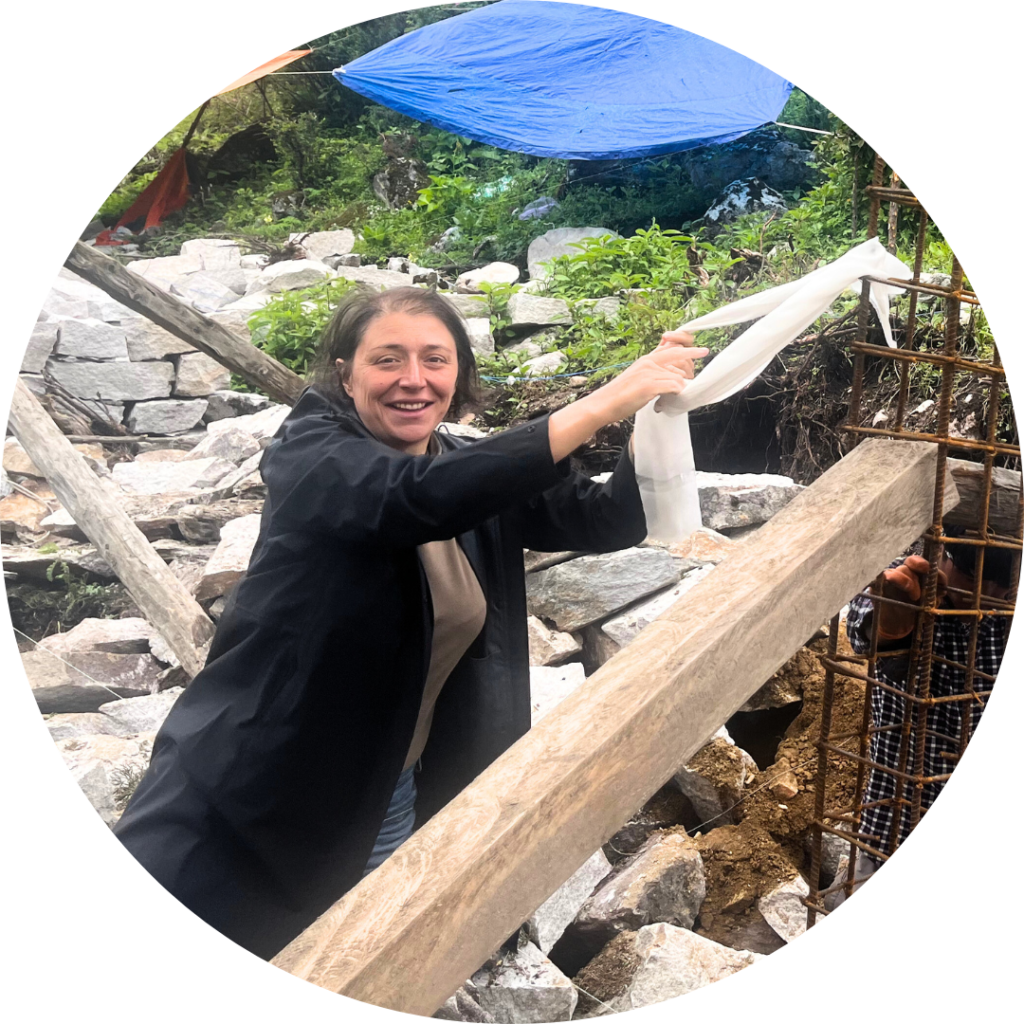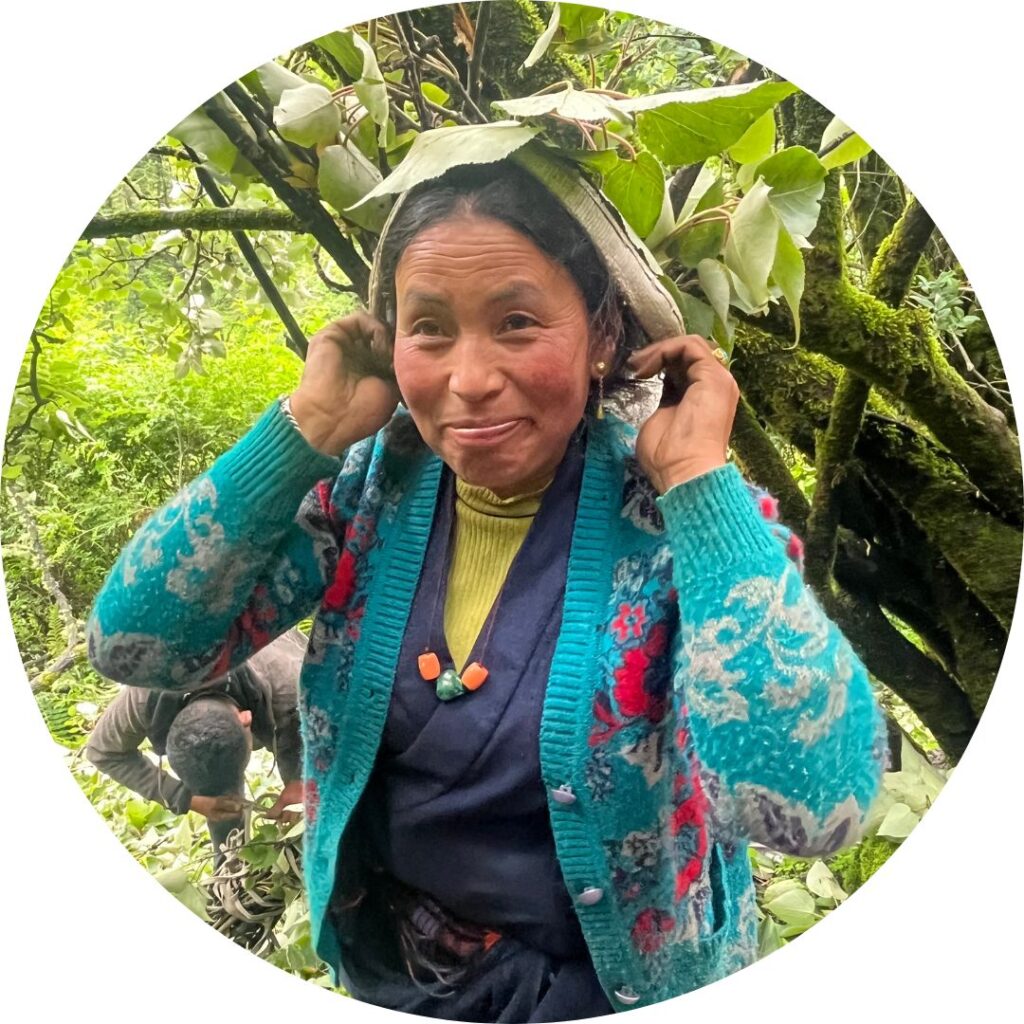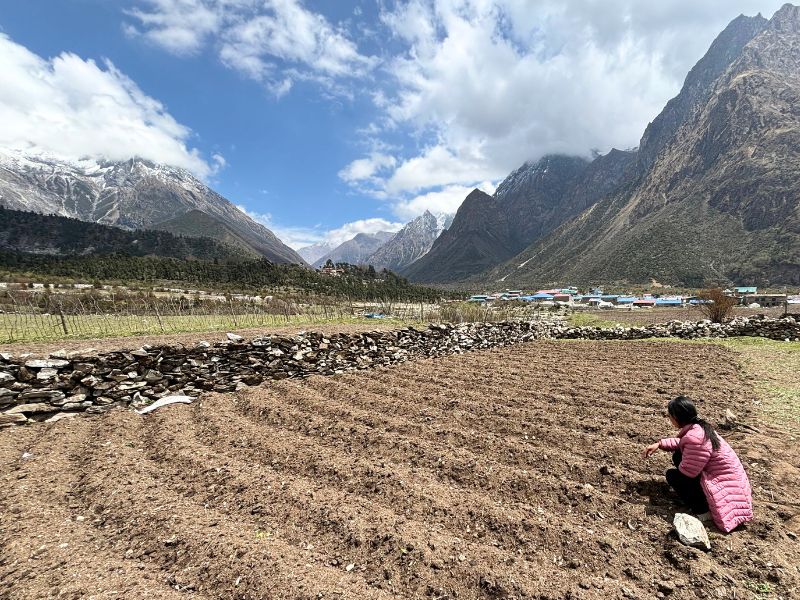Nubri: Between Climate Crisis and Social Challenges

Accelerated climate change in the mountainous region of Nubri, in northern Nepal, is an alarming phenomenon.
The disruptions it causes, coupled with increased demand for wood in the region, lead to disasters such as landslides and reduced yields of traditional crops like potatoes and barley.
As a result, the women responsible for collecting wood are overburdened, while many men have left the villages to work illegally in Western countries as cheap labor.
The traditional agro-pastoral system (farming and livestock) in the remote villages of Samagaun (3550m) and Samdo (3900m) — which can only be reached after a 4 to 5-day walk, with no road access — is affected by these issues, threatening the food security of the communities.
To address these challenges, the H.E.L.P. (Himalayan Environment, and Life Protection) association, created by Mingyur Rinpoche, with support from Karuna-Shechen, has launched a climate resilience project aimed at assisting the communities, including many women, of Samagaun and Samdo.
Karuna-Shechen and H.E.L.P have developed a close cooperation, facilitated by the special relationship with Margot Clavier, project coordinator, who has contributed to the success of this project aimed at strengthening climate resilience
Paul Saucé, Field Support Manager

Uniting for Resilience
In 2022, Karuna decided to partner with H.E.L.P. to support a Climate Resilience project.
Both organizations share common values: altruistic collaboration is the foundation of our holistic approaches.

Like Karuna, H.E.L.P. works hand in hand with communities.
Their needs are assessed, and a needs assessment is systematically conducted before each project to determine how to address them effectively. Then, solutions are proposed to the villagers so they can provide feedback.
It is essential to listen to them and adapt to the local context.
It was decided to support the villages of Samagaun and Samdo with the goal of increasing their resilience, mitigating the effects of climate change, protecting biodiversity, and reducing deforestation while creating local income opportunities.
At H.E.L.P, humans are not treated as a means to an end but rather as an end in themselves. This approach, also present at Karuna, resonates deeply with me.
Margot Clavier, H.E.L.P project coordinator

One Project, Multiple Initiatives
The Climate Resilience project has been divided into different areas :
– Fighting Deforestation
In Nepal, there is a system where forest management is entrusted to communities. A community reforestation group has been created in Samdo, managing the village nursery. 20,000 local trees were planted there between 2023 and 2024.

Pilot agroforestry projects are being conducted to enhance biodiversity by replanting trees in deforested areas near fields, some in the middle of naturally growing thorny bushes that act as natural barriers against yaks that roam freely in the villages before and after the summer grazing season.
To reduce firewood consumption, hotels and guesthouses in the villages, which are the largest consumers, are encouraged to use oil-filled radiators—less electricity-hungry than traditional electric heaters.
A pilot project was launched where guesthouses could purchase these heaters and will test them during the trekking season in October 2024 to see if they suit their needs and if they can limit or even stop using wood heating, thus avoiding further wood cutting.


Replanting trees will benefit the environment and the village by reducing landslides, and also villagers who can get construction wood more easily.
Mendok Lama, Reforestation Committee Member
– Resilient Potato Farming (Permaculture)

Potato farming is now threatened by a wart disease.
Potatoes, one of the primary sources of food for the communities, are becoming increasingly smaller, often inedible, and their growth will ultimately be compromised if this disease is not addressed within 3 to 5 years.
We had to act on the potato wart disease, a virus that causes growths on the tubers. People remove these growths and throw them into the soil or feed them to the yaks, which contaminate the fields with their excrement.
Margot Clavier
The resilient permaculture project, which aims to be more respectful of biodiversity and human needs, is currently underway to mitigate this threat over the next five years.
New seeds are being planted over two years, while resistant potatoes developed in the lab are being cultivated in parallel. After the third year, these crops will be introduced into local communities to evaluate their effectiveness and integration into existing agricultural systems.

Resilience in Action
Other projects are currently being implemented to develop sustainable economic opportunities, promote sustainable value chains, and create new markets for local products.

Among them, micro-channels for products derived from biodiversity, such as medicinal herbs and essential oils from various plants and trees growing in the region, wild garlic, as well as yak cheese and yak wool, are being tested: once established, they aim to protect ecosystems while providing income for communities and women, who are traditionally responsible for agriculture, as well as preserving the Himalayan culture and the traditional livelihoods of Samagaun and Samdo.
This project is also a way for the communities of Samdo and Samagaun to gain autonomy. In this spirit, a women’s community house is currently under construction, so that women can establish and sustain activities that resonate with them.

